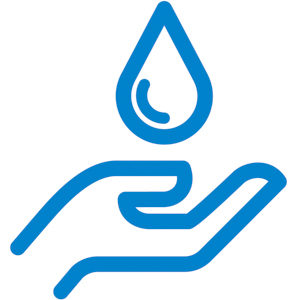Breast Cancer Treatment Side Effects

At Minneapolis Radiation Oncology, we bring advanced radiation therapy close to home, with 11 locations across the Twin Cities, Brainerd Lakes Area, and Western Wisconsin. Count on the cancer specialists at MRO to be here for you, with care, precision, and compassion.
Managing side effects of radiation therapy for breast cancer
Like treatments for any serious disease, there are risks and side effects involved with radiation therapy. Most go away in the weeks or months after treatment, while others may not even appear until years later. Your MRO radiation oncologist will not advise you to have any treatment unless the potential benefits (controlling cancer or relieving symptoms) are greater than the known risks.
During your breast cancer radiation treatment, you may experience one or more of the following side effects. If you experience these or other side effects, contact your MRO care team for suggestions on how best to minimize them.
-

Skin Care
It is okay to bathe or shower daily with a mild soap. Wash the treatment area gently. Do not scrub the skin. If you have ink marks on your skin, please do not wash them off. Gently pat the skin dry.
During the course of your radiation therapy treatments, we ask that you put nothing on the skin in the treatment area except for the products recommended by the physician or nurse. Use moisturizers for dryness and over-the-counter hydrocortisone cream for itchiness. Apply products twice daily or as needed. We do not want the skin “greasy” when you come in for treatment. Underarm deodorant may be used.
Avoid the use of hot or cold in the treatment area. This includes the use of heating pads, hot packs, hot water bottles, ice packs, and ice bags. It is okay to use an electric blanket. Avoid the use of tape or Band-Aids in the treatment area.
-

Sun Exposure
During treatment, avoid exposing the skin in the treatment area to direct sunlight or tanning beds. If you plan on being in the sun for an extended period, cover the skin with clothing or broad-spectrum sunscreen with an SPF of 30 or higher. The treatment area will always be more sensitive to the sun and tanning beds.
-

Cosmesis
Toward the end of therapy, the skin may appear reddened. As the redness fades, the skin may become darkened. This slight darkening of the skin should fade over the next several months.
-

Fatigue
Loss of energy is a common side effect of radiation therapy. Endurance, stamina, concentration, and motivation may decrease as a result of fatigue. Conserve your energy and rest when you need to. Eat a well-balanced diet and stay well-hydrated by drinking plenty of water. Exercise such as walking or yoga can improve your energy. Respect your body’s limitations–if you hurt while exercising, stop.
-

Nutrition
During your course of therapy, it is very important to maintain your weight. We suggest a diet high in protein and healthy fats. Your nurse will be checking your weight frequently. We can suggest food supplements if weight loss occurs. It is not unusual to notice a decrease in appetite during radiation therapy. You will need to make a conscious effort to maintain adequate calorie intake. Frequent, small meals (every 2-3 hours) may be tolerated better than three large meals a day.
-

Duration
Side effects may worsen the final week of treatment and the week after radiation treatments are completed. Most of these side effects gradually subside within 4-8 weeks after treatment. Please call our office if you have any questions at any time during or after your radiation treatments.
Rare long-term effects of radiation therapy for breast cancer
Most side effects clear up quickly after radiation treatment, but there are rare long-term effects of radiation therapy for breast cancer, which may appear months, or even years, later. Most of these chronic side effects have been greatly reduced with modern radiation therapy techniques.
- Lymphedema – Damage or removal of lymph nodes from surgery and/or radiation treatment can cause lymphedema, a blockage that prevents lymph fluid from draining and causes swelling.
- Potential breast changes – Some women who have had radiation therapy may have challenges breastfeeding and may find their breast is and firmer.
- Lung changes – Rarely, a small portion of the lung just under the breast may develop some scarring, leading to radiation pneumonitis, a lung inflammation which causes shortness of breath, dry cough, and a low-grade fever. Medication helps relieve symptoms, and it often goes away with time.
- Change in skin color and thickness – You may see a permanent change in skin color, specifically around any scars and the locations the radiation was directed.
- Shoulder and/or rib discomfort – Some patients may experience decreased range of motion after treatment, along with shoulder discomfort.
- Nerve damage – A very small percentage of patients may experience tingling, pain, and weakness in your hand or arm.
“When I first meet patients, there are a lot of questions about their cancer. ‘What is radiation treatment?’ What could the outcomes be? Empowering patients with answers to their questions, so they know exactly what they are facing and that we are treating aggressively to maximize their best possible outcome turns fear into confidence.”
Jenna Borkenhagan, MD
MRO | Unity
For questions to ask your provider, see our FAQ page.